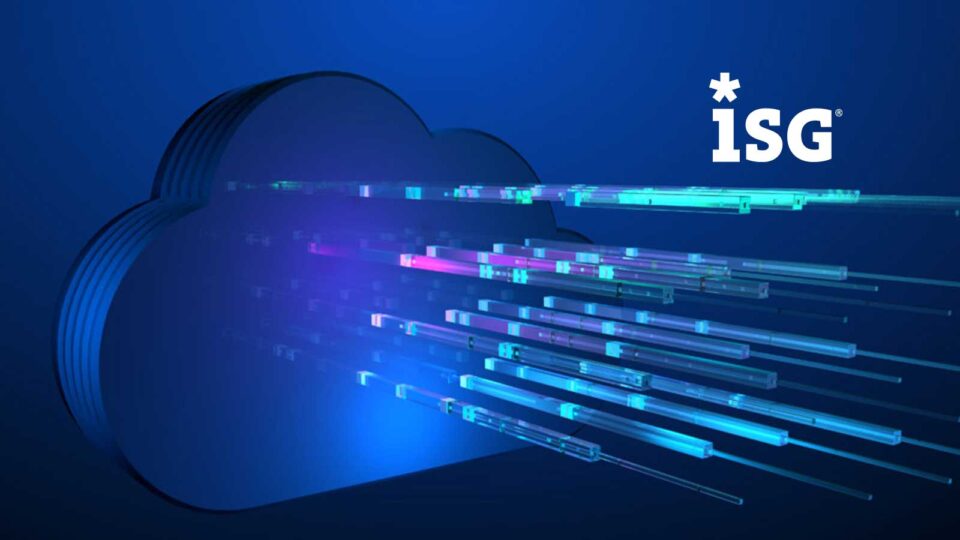The Google Cloud Platform (GCP) ecosystem in the U.S. is growing as enterprises add an analytics layer to already mature cloud strategies, according to a new research report published by Information Services Group a leading global technology research and advisory firm.
CIO INFLUENCE: Nextira Selected by Ansys Technology Partner Program to Support Customers Implementing Ansys Gateway Powered by AWS
“GCP enhances their cloud deployments, and partners provide unique capabilities on top of GCP.”
The 2023 ISG Provider Lens Google Cloud Partner Ecosystem report for the U.S. finds the use of public clouds has become a mainstream enterprise practice, supporting even mission-critical applications. Over the past three years, more companies have implemented advanced GCP-based functions on top of the basic public cloud resources, such as storage and processing power, they buy from AWS and Azure.
“Most large-scale enterprises in the U.S. are innovators when it comes to hyperscale public cloud adoption,” said Bernie Hoecker, ISG partner and Enterprise Cloud Transformation leader. “GCP enhances their cloud deployments, and partners provide unique capabilities on top of GCP.”
The retail, healthcare, education, robotics, gaming and financial services sectors in the U.S. have been especially successful in using containerization and the Kubernetes orchestration framework to migrate major workloads from legacy systems to GCP, the report says. One common use of GCP has been to deploy AI and ML capabilities that improve omnichannel customer experiences. Many small and midsize companies are also adopting GCP-based solutions to solve technology challenges and overcome a shortage of skilled workers.
Enterprises are under increasing pressure to monetize their data by using it to improve business processes or offer data and analytics as services, and many are using GCP to achieve these goals, ISG says. The platform is also helping to drive important objectives such as modernizing business intelligence systems and strengthening data governance.
Data also plays a key role in sustainability, including decarbonization of cloud computing, the report says. Some enterprises have adopted Google’s Carbon Footprint metric to measure progress toward this goal.
CIO INFLUENCE: General Data Protection Regulation (GDPR) Anniversary
“U.S. companies urgently need to adopt sustainable solutions,” said Jan Erik Aase, partner and global leader, ISG Provider Lens Research. “Google and its partners are helping to create the data foundation for these investments.”
The migration of critical workloads, such as SAP, to the cloud is accelerating as enterprises seek greater scalability and flexibility, ISG says. While some are taking a cautious approach and embracing private clouds, others are implementing SAP S/4HANA on GCP or integrating Google Workspace with SAP so users can access SAP data through Workspace applications. A growing number of providers are partnering with Google and SAP to make this possible.
For more insights into enterprise cloud challenges, including how to derive maximum value from data, and advice to overcome them, see the ISG Provider Lens Focal Points briefing here.
The 2023 ISG Provider Lens™ Google Cloud Partner Ecosystem report for the U.S. evaluates the capabilities of 30 providers across five quadrants: Implementation and Integration Services, Data Analytics and Machine Learning, Managed Services, SAP Workloads and Workplace Services.
The report names Accenture, Cognizant, Infosys, TCS and Wipro as Leaders in all five quadrants. It names HCLTech as a Leader in four quadrants. Capgemini, Deloitte, LTIMindtree and Persistent Systems are named as Leaders in three quadrants each. Quantiphi, Rackspace Technology and Tech Mahindra are named as Leaders in two quadrants each, and IBM is named as a Leader in one quadrant.
In addition, 66degrees, Kyndryl and Mphasis are named as Rising Stars — companies with a “promising portfolio” and “high future potential” by ISG’s definition — in two quadrants each. Genpact, LTIMindtree, Persistent Systems and Tech Mahindra are named as Rising Stars in one quadrant each.
CIO INFLUENCE: CIO Influence Interview with Pete Lilley, Vice President and GM at Instaclustr
[To share your insights with us, please write to sghosh@martechseries.com]


